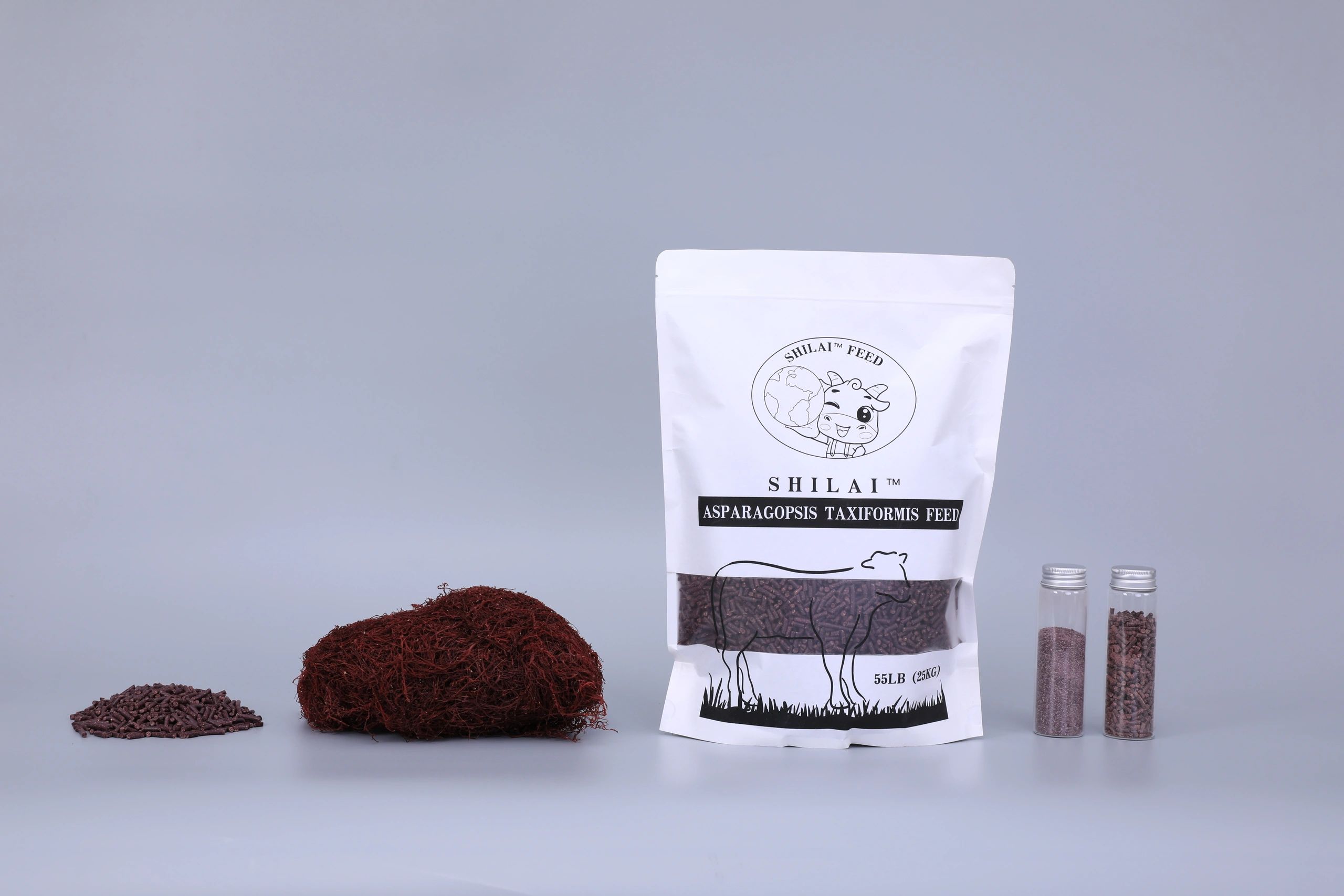
Farming worldwide represents a substantial fraction of greenhouse gas emissions, principally from animal husbandry.
Methane is an especially potent greenhouse gas with a greater climate forcing effect than CO2, raising major concerns.
Evidence suggests Asparagopsis taxiformis, a red marine plant, could offer a promising route to curtail methane from animal agriculture.
A unique chemical in the seaweed interferes with rumen methanogens, resulting in measurable decreases in methane production.
Incorporating Asparagopsis taxiformis into animal diets has produced promising early results that suggest a viable path to reduce farming-related greenhouse gas emissions.
- Furthermore, Asparagopsis taxiformis delivers a range of complementary benefits beyond methane mitigation.
- Stronger digestive performance in animals
- Potential to stimulate rural economies via seaweed value chains
Continued study and commercial testing are required, however Asparagopsis taxiformis could be a transformative sustainable solution.
Tapping the Value of Asparagopsis taxiformis Powder for Livestock Diets
Asparagopsis taxiformis prepared as powder or extract could enable broad deployment as a functional feed additive.
Its profile of nutrients and active substances has the potential to raise livestock productivity and health.
Integrating A. taxiformis powder into feed formulas has decreased methane in experiments and can enhance nutrient supply.
Expanded experimental work is required to refine inclusion levels, manufacturing approaches, and comprehensive safety data.
Asparagopsis taxiformis and the Future of Sustainable Animal Agriculture
The crimson alga is attracting interest for its potential to tackle environmental challenges arising from traditional livestock systems.
By cutting methane emissions when added to feed, the algae could help farmers materially lower their environmental footprint.
Scientific work suggests Asparagopsis can deliver both environmental and animal health/productivity advantages.
Extensive trials and commercial validation are needed, but initial evidence supports continued investment and testing.
Using Asparagopsis as a Feed Additive to Reduce Methane
The species offers a promising mechanism to curtail methane emissions originating from ruminant digestive processes.
Compounds in Asparagopsis act on rumen microorganisms to suppress methanogenesis and lower methane output.
- Trials and studies have repeatedly observed large methane declines with Asparagopsis supplementation.
- Adopting Asparagopsis in feeds offers an eco-friendly option to address methane from livestock.
- Agricultural stakeholders are evaluating the practical adoption of Asparagopsis within farm feed programs.
Asparagopsis: Seaweed Fueling Sustainable Change in Animal Agriculture
Ocean-sourced Asparagopsis taxiformis is gaining recognition for its capacity to reduce methane in ruminant digestion.
- Studies incorporating Asparagopsis have recorded meaningful methane decreases, signaling potential for environmental impact reduction.
- The approach may enable more sustainable food systems that reduce emissions while maintaining farm productivity.
In the search for scalable climate solutions, Asparagopsis is highlighted as a promising and practicable methane mitigation tool.
Maximizing the Methane-Reduction Potential of Asparagopsis taxiformis Feed Products
Studies concentrate on ideal handling, formulation, and application rates to make A. taxiformis-based feeds most effective.
The Science Behind Asparagopsis taxiformis's Methane-Lowering Effects
Scientists attribute the effect to Asparagopsis compounds that impair the methanogenesis process in the rumen.
The seaweed’s methane reduction is associated with bromoform compounds, which are under active investigation for mechanisms and risk assessment.
Blending Asparagopsis into Diets for More Sustainable Farming
Asparagopsis’s nutritional profile and methane-cutting bioactives make it an attractive candidate for inclusion in modern feed formulations.
The seaweed’s inclusion can enrich feed nutrient profiles, support gut health, and exhibit antimicrobial or immune-supportive properties.
Asparagopsis taxiformis as a Nature-Based Path to Greener Food Production
The seaweed is positioned as an innovative, nature-based measure to tackle emissions and improve the sustainability of food supply chains.
- In addition, the seaweed contributes essential nutrients and beneficial compounds to diets.
- Researchers and practitioners are investigating diverse applications of the species across farming and food industries.
Incorporation of the species into standard practices could yield notable environmental benefits for agriculture.
Benefits of Asparagopsis Feed Additive on Animal Health and Productivity
Asparagopsis is attracting interest as a supplement that can lower methane and concurrently bolster animal health and efficiency.
Use in diets has been associated with improved nutrient absorption and feed conversion, which can support weight gain and overall condition.
Additional functional properties such as antioxidant or immunomodulatory effects have been observed that could strengthen animal health.
Growing demand for sustainable livestock solutions positions Asparagopsis as an attractive option as research and commercialization progress.
Asparagopsis Feed Strategies: Moving Toward a Carbon-Neutral Future
Agriculture is under increasing demand to cut emissions, and Asparagopsis represents a practical route to reduce methane contributions.
- Researchers suspect the algae’s molecules interfere with the biochemical steps of methanogenesis, reducing methane generation.
- Trials and experiments have produced promising results, showing substantial methane reductions when Asparagopsis is included in diets.
Beyond being a lower-emission feed choice, the approach could help reorient food production to align with climate resilience goals.